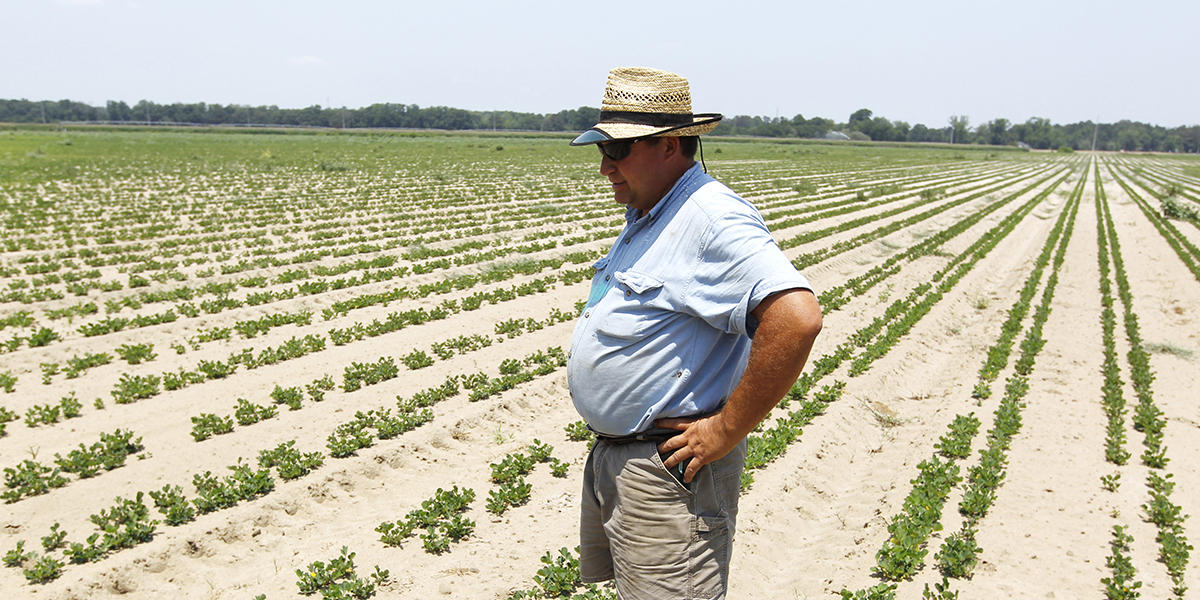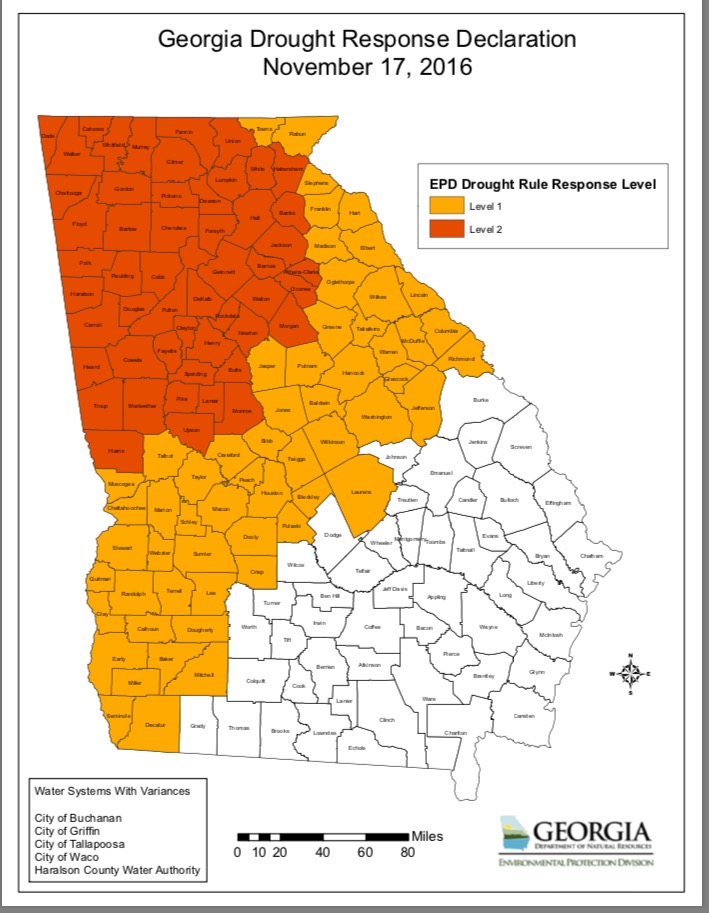Georgia has not received any significant rainfall since September.
Around that time, 53 counties were declared to be in a Level 1 drought.
The lack of water alongside the drastic smoke pollution calls for “the toughest water limits since the devastating droughts of the late 2000’s,” according to AJC.
Things haven’t gotten any better since then. Last week it was revealed that 52 counties were in a Level 2 drought while 58 counties were in a Level 1 drought.
Governor Nathan Deal has implemented water restrictions in 52 counties after Georgia was declared in a Level 2 severe drought.
The new restrictions includes the limitation of:
- Power washing streets and sidewalks
- Water for ornamental purposes, such as fountains
- Car washes
- Pressure washing
- Use of fire hydrants by civilians
In addition, a schedule for watering has been issued. The schedule states that even-numbered addresses can water their lawns on Wednesday and Saturday at any time except between 10a.m. and 4.p.m.
Odd-numbered addresses can water on Thursday and Sunday with the same time restriction.
“We must be responsible stewards of our water resources. That means watering only when it’s necessary, not twice a week just because that’s allowed. I’m confident that our region, its local governments and its residents will take the necessary steps during this drought to conserve water,” said the Chair of the Metro Water District, Boyd Austin.
The counties included in the Level 2 Drought Response are: Banks, Barrow, Bartow, Butts, Carroll, Catoosa, Cherokee, Athens-Clarke, Clayton, Cobb, Coweta, Dade, Dawson, DeKalb, Douglas, Fannin, Fayette, Floyd, Forsyth, Fulton, Gilmer, Gordon, Gwinnett, Habersham, Hall, Haralson, Harris, Heard, Henry, Jackson, Lamar, Lumpkin, Meriwether, Monroe, Morgan, Murray, Newton, Oconee, Paulding, Pickens, Pike, Polk, Rockdale, Spalding, Troup, Union, Upson, Walker, Walton, White and Whitfield.
The counties included in the Level 1 Drought Response are: Barker, Baldwin, Bleckley, Calhoun, Chattahoochee, Clay, Columbia, Crawford, Crisp, Decatur, Dooly, Dougherty, Early, Elbert, Franklin, Glascock, Greene, Hancock, Hart, Houston, Jasper, Jefferson, Jones, Laurens, Lee, Lincoln, Macon, Madison, Marion, McDuffie, Miller, Mitchell, Muscogee, Oglethorpe, Peach, Pulaski, Putnam, Quitman, Rabun, Randolph, Richmond, Schley, Seminole, Stephens, Stewart, Sumter, Talbot, Taliaferro, Taylor, Terrell, Towns, Twiggs, Warren, Washington, Webster, Wilkes, and Wilkinson.
These policies are only temporary and will lift once the state determines Georgia receives adequate rainfall again.




